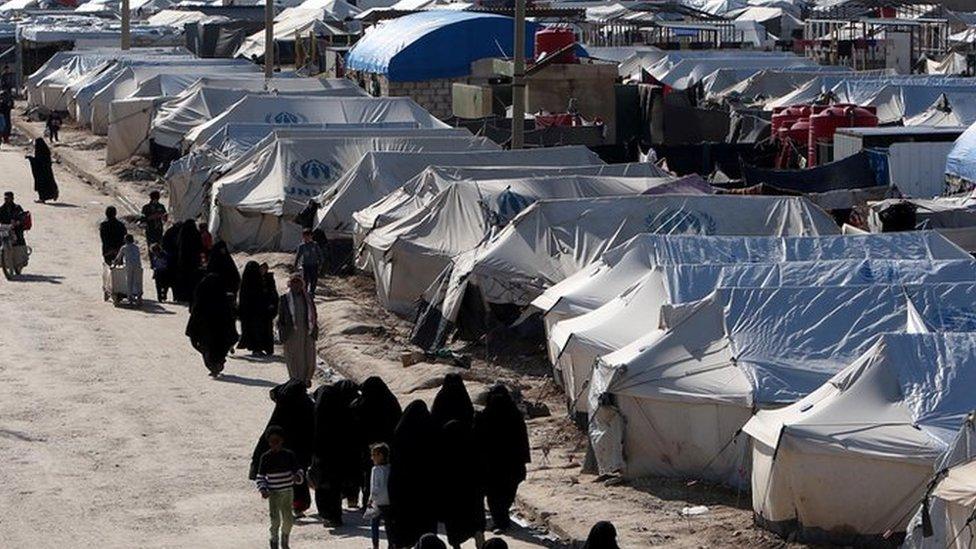Islamic State 'Beatles' El Shafee Elsheikh and Alexanda Kotey could be tried in UK
- Published
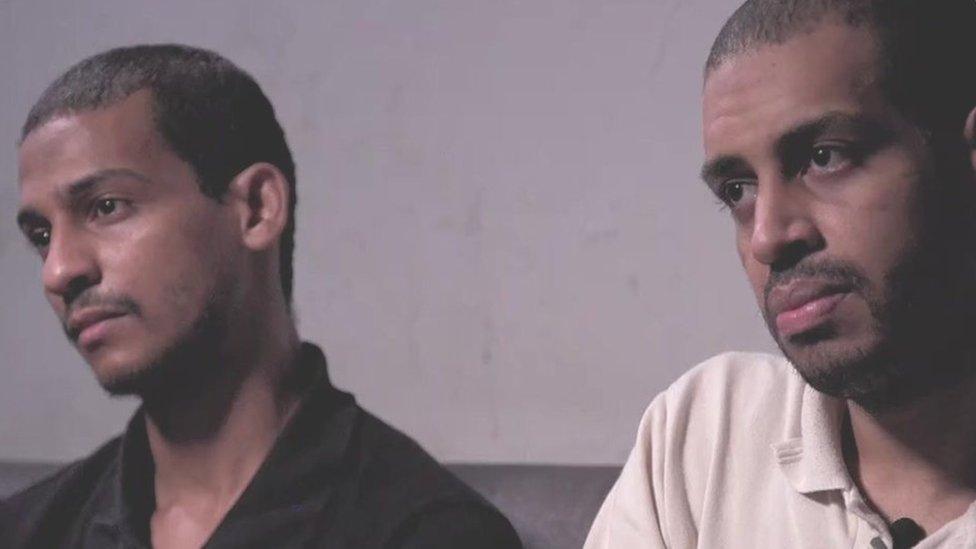
El Shafee Elsheikh (left) and Alexanda Kotey were captured by Syrian Kurdish forces
British investigators have enough evidence to prosecute two of the so-called Islamic State "Beatles" in the UK, the Supreme Court has been told.
El Shafee Elsheikh and Alexanda Kotey are accused of belonging to an IS cell which is thought to have kidnapped and murdered Western hostages in Syria.
They are currently being held in northern Syria.
The US wants to use evidence amassed by British investigators to put both men on trial there.
However, Washington is refusing to give the UK a standard assurance that neither man would be executed if convicted.
Mr Elsheikh's mother, Maha Elgizouli, is trying to block the government from handing over the information - after it decided to help the US.
It has emerged that she also wants to take the Crown Prosecution Service (CPS) to court for failing to put her son on trial in the UK.
The pair, who are from London, are accused of being members of an IS cell - dubbed "The Beatles" because of their British accents - which also included Mohammed Emwazi, known as Jihadi John, who was killed in a US air strike in 2015, and Aine Davis, who has been jailed in Turkey.
Opening Mrs Elgizouli's challenge before seven of the UK's most senior judges, Edward Fitzgerald QC said the Crown Prosecution Service (CPS) had held "very substantial evidence" since 2016 to charge Mr Kotey with five murders and eight counts of hostage-taking.
The Director of Public Prosecutions had also acknowledged there may be sufficient evidence to charge Mr Elsheikh with membership of a banned terrorist organisation.
No steps had been taken to launch prosecutions because of legal obstacles to asking Kurdish forces to hand over the men, both of whom have been stripped of British nationality.
In contrast, Ben Wallace, the former security minister and now defence secretary, told MPs in July 2018 that the UK did not have evidence to try either of the men in the UK - and a US trial was the only solution.
"Mrs Elgizouli is solely concerned to protect her son from the death penalty," said Mr Fitzgerald.
"She recognises the enormity of the crimes alleged against her son, Shafee Elsheikh, and against his alleged accomplice, Alexanda Kotey. She recognises they should face justice. But she submits that they should face justice in this country, the country of their past citizenship."
'Honourable tradition'
The court heard that the US government asked the UK as early as 2015 to help build a case against Mr Elsheikh and Mr Kotey.
Theresa May, when she was home secretary in 2015, told Washington the UK would only hand over evidence after receiving a categorical guarantee that neither man would be executed.
The UK has long sought and obtained such a death penalty assurance from the United States.
That position was reiterated by Mrs May's successor, Amber Rudd, but then reversed after Sajid Javid entered the Home Office in April 2018.
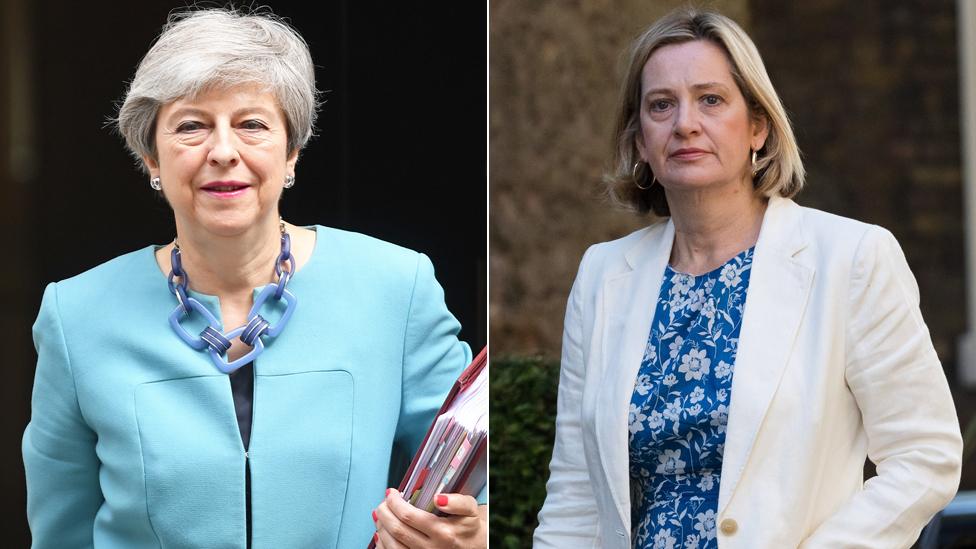
Both Theresa May and Amber Rudd said the UK would only hand over evidence after receiving a categorical guarantee that neither man would be executed
Sir Kim Darroch, the then British ambassador to Washington, warned him that US President Donald Trump would be wound up if the UK kept insisting on a death penalty assurance.
"They already feel that we are dumping on them a problem for which we should take responsibility," he wrote.
Mr Javid subsequently offered to share with the Americans as many as 600 witness statements, without seeking any kind of guarantee that Mr Elsheikh and Mr Kotey would not be put to death.
Mr Fitzgerald said the UK's policy of refusing to provide evidence that could lead to the death chamber was so clear to the world that it was part of the nation's common law.
"[Mrs Elgizouli] is asking no more than that the home secretary should apply the settled policy," he told the justices.
"Behind that policy lies a long and honourable tradition on the part of this country of rejecting the death penalty as morally wrong in all circumstances.
"We have maintained a firm policy of refusing extradition or deportation to countries that impose the death penalty, no matter how serious the offence and no matter how repellent the offender."
Mrs Elgizouli is appealing against a High Court ruling made in January by two leading judges, who concluded that Mr Javid's decision was not unlawful.
Meanwhile, a senior US counter-terrorism official has told BBC Newsnight the UK should be repatriating British IS fighters and prosecuting them at home, arguing that its failure to do so is a "dereliction of responsibility".
- Published18 January 2019
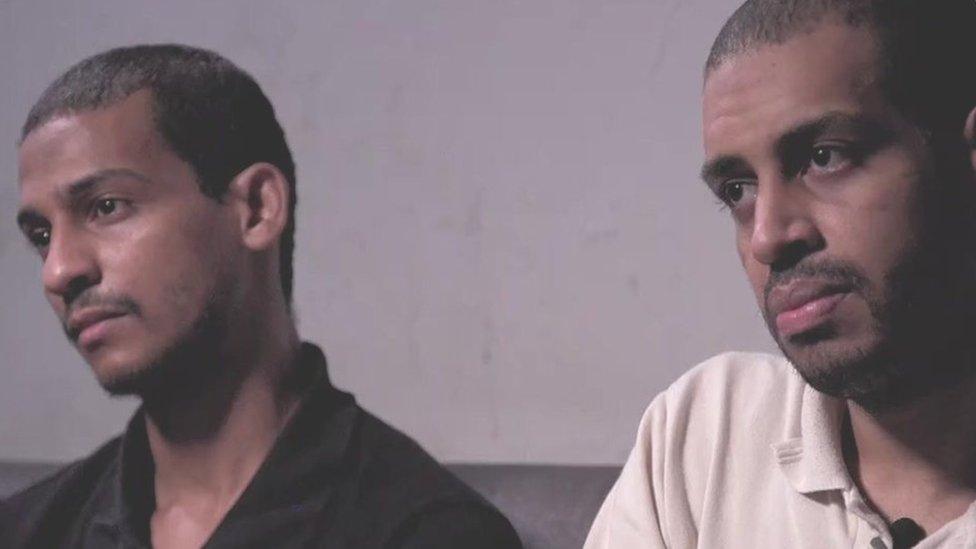
- Published23 July 2018
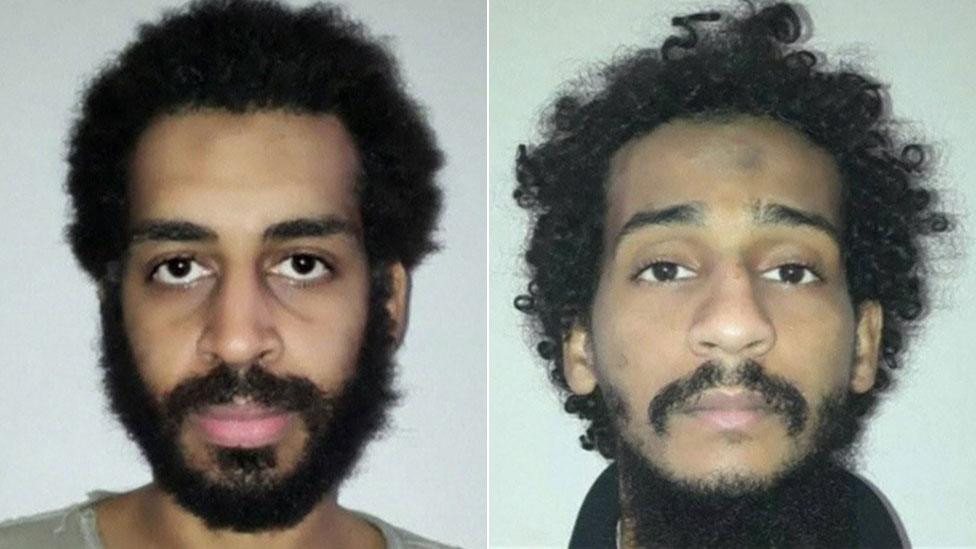
- Published11 August 2022
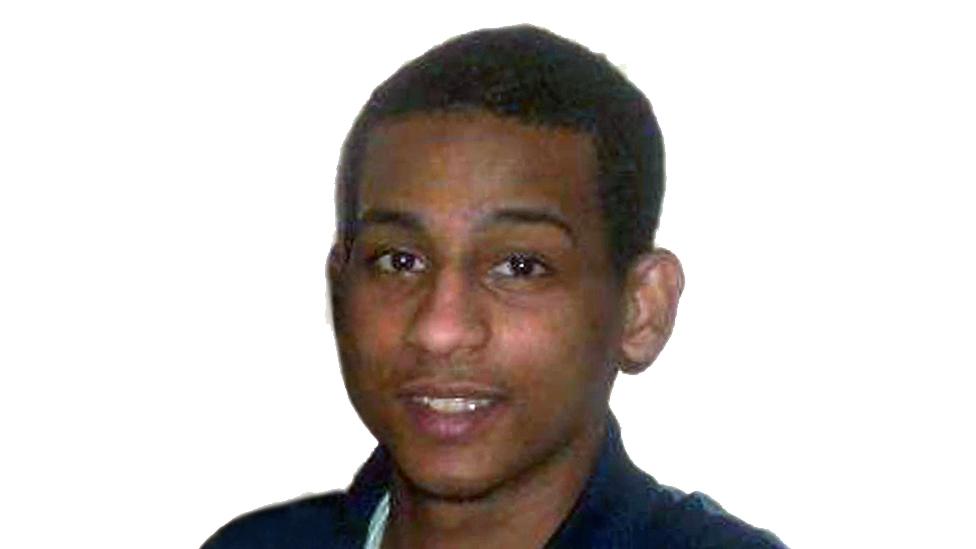
- Published30 July 2019
